使用SSMS数据库管理工具修改CHECK约束
1、打开数据库,选择数据表-》右键点击-》选择设计(或者展开约束,选择约束,右键点击,选择修改,后面步骤相同)。
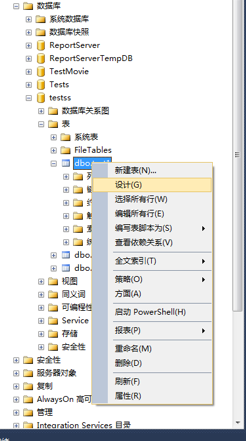
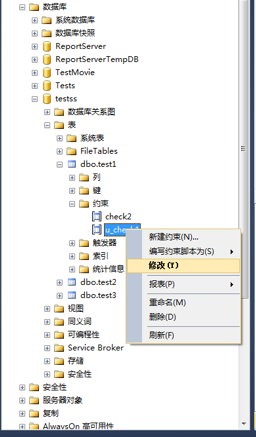
2、选择要修改的数据列-》右键点击-》选择CHECK约束。
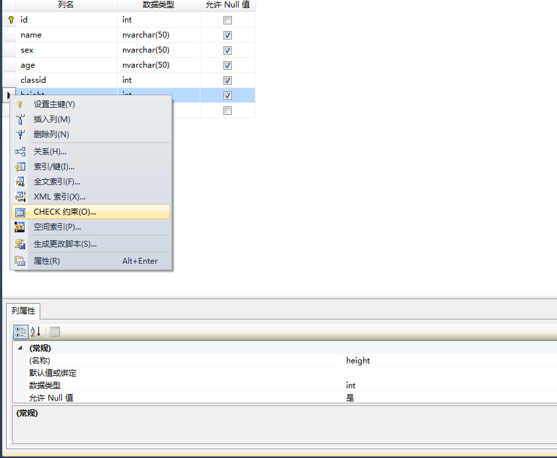
3、在CHECK约束弹出框中-》选择要修改的约束-》输入约束表达式-》输入约束名和约束描述-》选择表设计器规则-》点击关闭。
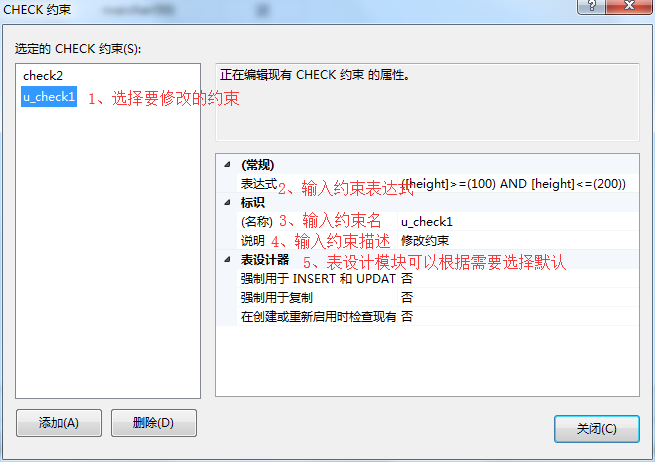
4、点击保存按钮(或者ctrl+s)-》刷新表查看修改结果。

使用T-SQL脚本修改CHECK约束
CHECK约束修改规则必须首先删除现有的CHECK约束,然后使用新定义重新创建,才能使用Transact-SQL修改CHECK约束。
语法:
--修改check约束
use 数据库名
go
--如果约束存在则先删除
if exists(select * from sysobjects where name=约束名)
alter table 表名 drop constraint 约束名;
go
--添加约束
alter table 表名
--with check --该约束是否应用于现有数据,with check表示应用于现有数据,with nocheck表示不应用于现有数据
add constraint 约束名
check
not for replication --当复制代理在表中插入或更新数据时,禁用该约束。
(约束表达式);
go
--向表中添加新数据或更新表中现有数据时是否禁用该约束。check表示校验,nocheck表示不校验
--alter table 表名
--check
--constraint 表名;
--go
--添加check约束描述
execute sp_addextendedproperty N'MS_Description', N'约束描述', N'SCHEMA', N'dbo', N'TABLE', N'表名', N'CONSTRAINT', N'约束名';
go
示例:
--修改check约束
use testss
go
--如果约束存在则先删除
if exists(select * from sysobjects where name='u_check2')
alter table test1 drop constraint u_check2;
go
--添加约束
alter table test1
--with check --该约束是否应用于现有数据,with check表示应用于现有数据,with nocheck表示不应用于现有数据
add constraint u_check2
check
not for replication --当复制代理在表中插入或更新数据时,禁用该约束。
(height>=100 and height <=200);
go
--向表中添加新数据或更新表中现有数据时是否禁用该约束。check表示校验,nocheck表示不校验
--alter table test1
--check
--constraint u_check2;
--go
--添加check约束描述
execute sp_addextendedproperty N'MS_Description', N'修改约束', N'SCHEMA', N'dbo', N'TABLE', N'test1', N'CONSTRAINT', N'u_check2';
go
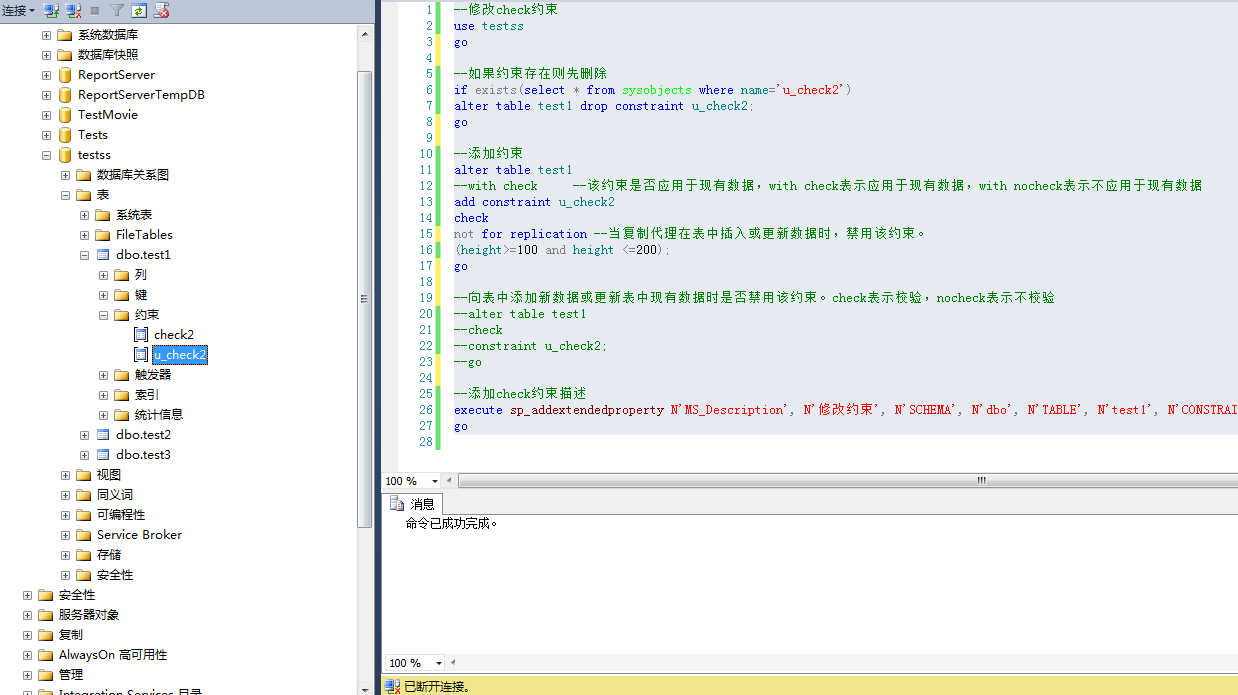
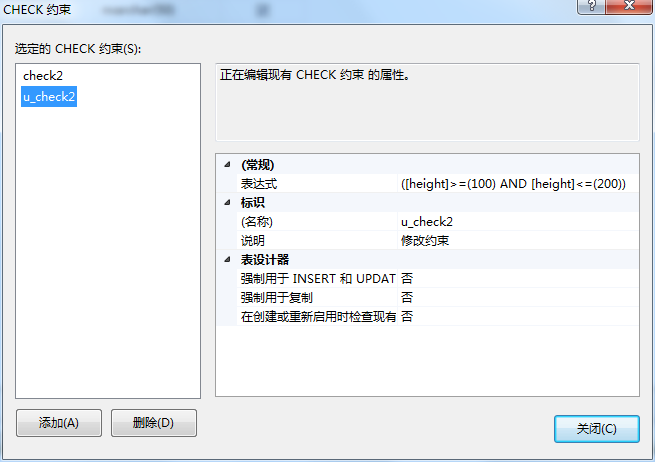
CHECK约束修改优缺点
优点:
1、修改数据库CHECK约束可以保证数据的规范性和完整性。
缺点:
1:修改约束的表设计器使用规则时,可能会引起原有数据与约束的冲突。